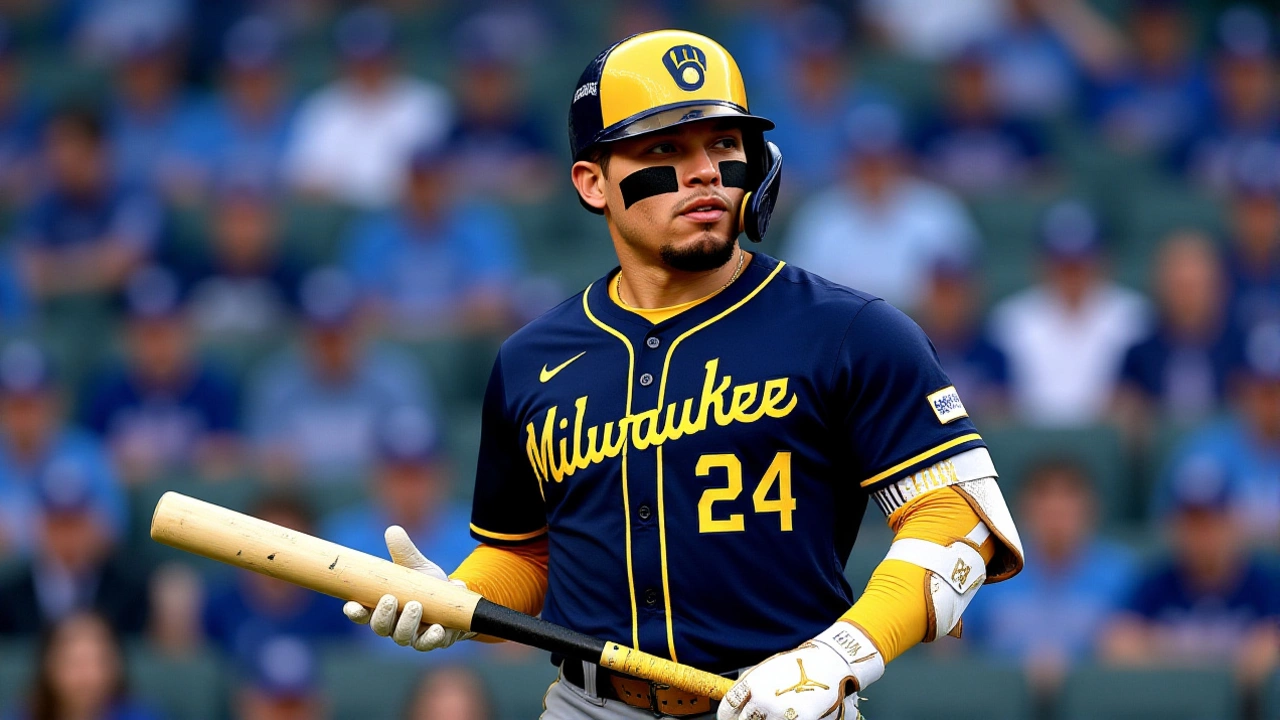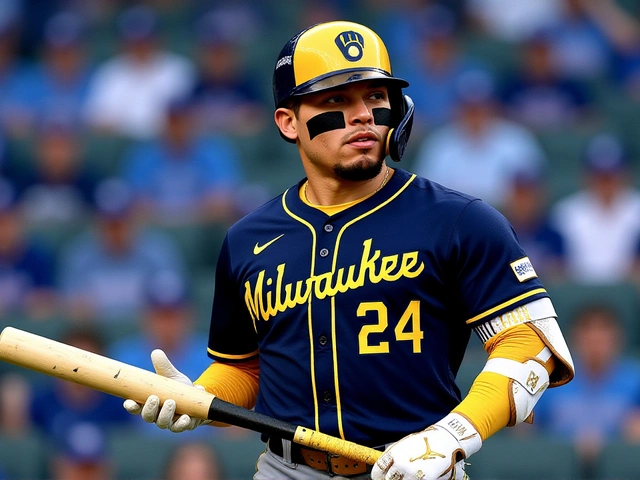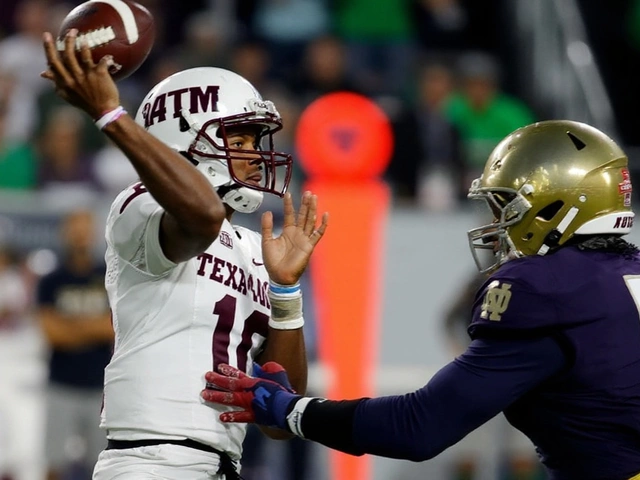Rookie Jacob Misiorowski, the right‑handed starter for the Milwaukee Brewers, delivered a clutch performance on October 11, 2025, pitching the team to a 3‑1 victory over the Chicago Cubs in the decisive 2025 National League Division Series Game 5American Family Field. The win snapped Chicago’s postseason run and propelled Milwaukee into the National League Championship Series.
Series Overview and the Road to Game 5
Before the final showdown, the NLDS had been a textbook case of home‑field advantage. The Brewers surged ahead with two straight wins at American Family Field, taking a 2‑0 series lead. The Cubs answered back with back‑to‑back victories at Wrigley Field, leveling the series and forcing a winner‑take‑all fifth game.
Milwaukee finished the regular season with the best record in the National League, a 95‑67 mark that earned them top seeding and the right to host the decisive game. Their home record was a formidable 52‑29, a statistical edge that bettors highlighted when the odds listed the Brewers as -145 favorites.
Pitching Duel: Misiorowski vs. Imanaga
The matchup on the mound was as risky as it was intriguing. The Cubs leaned on left‑hander Shota Imanaga, who was called upon to start on just three days of rest after his Game 4 effort. Analysts warned that short rest could blunt his usually sharp fastball, but his reputation as a strikeout artist still made him a formidable opponent.
Misiorowski, only 23 and in his first postseason appearance, countered with a mix of a 94‑mph fastball and a sharp slider. He logged six solid innings, conceding just one run on a solo home run in the fourth inning. The rookie’s poise reminded many of 2022’s breakout Brewers starter Brandon Woodruff, though Misiorowski still has to prove consistency over a full season.
Behind the starters, the Brewers’ bullpen—anchored by closer James McCarthy—shut the Cubs down in the late innings. McCarthy recorded the final three outs, sealing the win and earning his third postseason save.
Key Performances and Turning Points
Off the mound, the offensive battle was tightly contested. Milwaukee’s Jackson Chourio gave the Brewers an early spark with a leadoff single in the first and later drove in the go‑ahead run with a sacrifice fly. Chourio’s streak of reaching base in seven straight postseason games continued, underscoring his reputation as a clutch contact hitter.
Chicago’s power threat, Michael Busch, entered Game 5 having already slammed four home runs in the series, including a dramatic leadoff blast in Game 4. However, Misiorowski kept a tight grip on the strike zone, limiting Busch to a groundout and a single, ending his postseason home‑run run.
The decisive moment arrived in the fifth inning when Milwaukee’s Colin Rea ripped a two‑run double to left‑center, stretching the lead to 3‑0. The Cubs managed a lone run on a sacrifice fly by Ian Happ, but the early cushion proved enough.
Fan Atmosphere and Home‑Field Edge
The atmosphere at American Family Field was electric. By the fifth inning, the crowd’s roar had reached a decibel level comparable to a minor‑league stadium’s “loudest ever” designation, according to the Brewers’ marketing director. Fans waved the iconic “B” flag and sang the team’s fight song every time a Brewers player stepped up to the plate.
Beyond the noise, the Brewers benefitted from familiar sight‑lines and a bullpen that had practiced in the same clubhouse for weeks. Their familiarity with the left‑field fence—where a few past home runs had bounced out—gave the hitters a psychological edge, a factor discussed by former MLB analyst Mike Sutter on the post‑game broadcast.
What the Win Means for Milwaukee and the NLCS
Advancing to the NLCS pits the Brewers against the winner of the other National League Division Series, likely the Los Angeles Dodgers or the Atlanta Braves. The Brewers’ front office, led by President of Baseball Operations Matt Arnold, emphasized that the team’s depth—especially the versatility of their bullpen—will be vital against a power‑heavy opponent.
From a betting perspective, the total‑runs line of 7.5 set before the game proved accurate; the final 4‑2 total kept the over/under market in check. Analysts now project Milwaukee as a +120 underdog in the upcoming NLCS, a scenario that could reward bettors who back the underdog given the Brewers’ proven home‑field resilience.
For Chicago, the loss marks the end of a season that began with high expectations after a mid‑season trade for veteran reliever J.T. Chargois. Manager David Ross praised his team’s fight but acknowledged that the short‑rest decision for Imanaga was a gamble that didn’t pay off.
Frequently Asked Questions
How does this victory affect the Brewers’ chances in the NLCS?
The win gives Milwaukee momentum and a confidence boost heading into a likely matchup against a high‑powered team such as the Dodgers or Braves. Their strong bullpen, which posted a 1.85 ERA in the NLDS, will be a key factor, while the home‑field advantage they enjoyed in the Division Series may not carry over, making strategic pitching adjustments essential.
What were the critical statistical differences between the two teams in Game 5?
Milwaukee out‑slid Chicago 8‑4, recorded three more strikeouts (7 to 4), and limited the Cubs to a single home run. The Brewers also had a lower on‑base percentage (.312 vs. .356) but capitalized on their chances with timely hitting, turning two singles into three runs.
Why did the Cubs choose to start Shota Imanaga on short rest?
Chicago’s rotation was thin after a bullpen‑heavy Game 4, and manager David Ross trusted Imanaga’s veteran poise to handle high‑leverage innings despite only three days of rest. The decision was a calculated risk that aimed to keep the closer fresh for a potential Game 6, which ultimately never materialized.
What does Jacob Misiorowski’s performance signal for his future with the Brewers?
A six‑inning, one‑run effort in a high‑pressure elimination game suggests Misiorowski can handle big moments. If he continues to refine his secondary pitches, he could emerge as a regular in the rotation, giving Milwaukee a cost‑controlled arm for years to come.
How does this series compare to the 2023 NLDS between the same teams?
In 2023, the Cubs won the series in four games, capitalizing on Milwaukee’s bullpen struggles. This year, the Brewers flipped the script with a dominant home‑field record and a more balanced staff, turning the tide in a decisive Game 5 that the 2023 Cubs never got to play.







